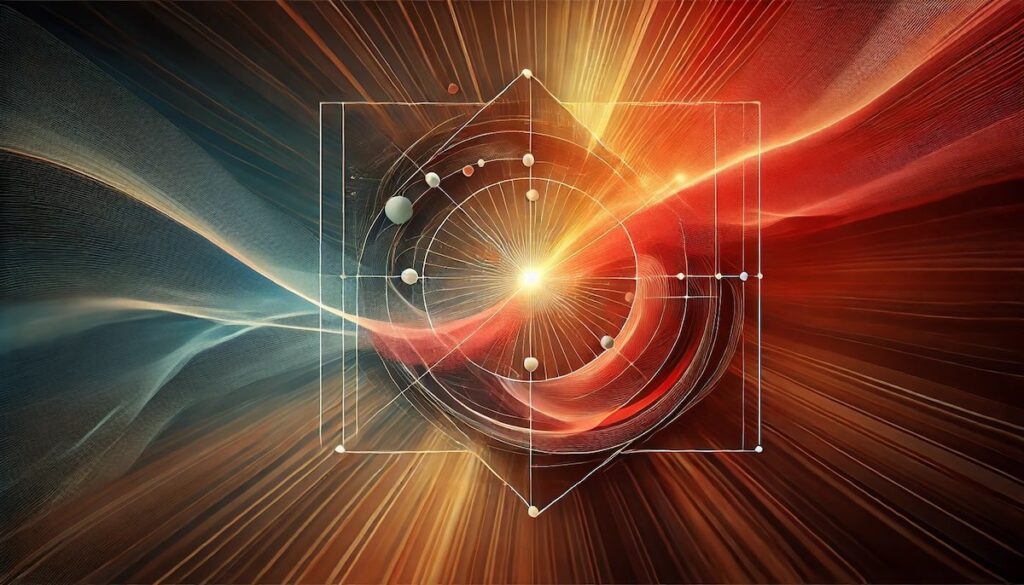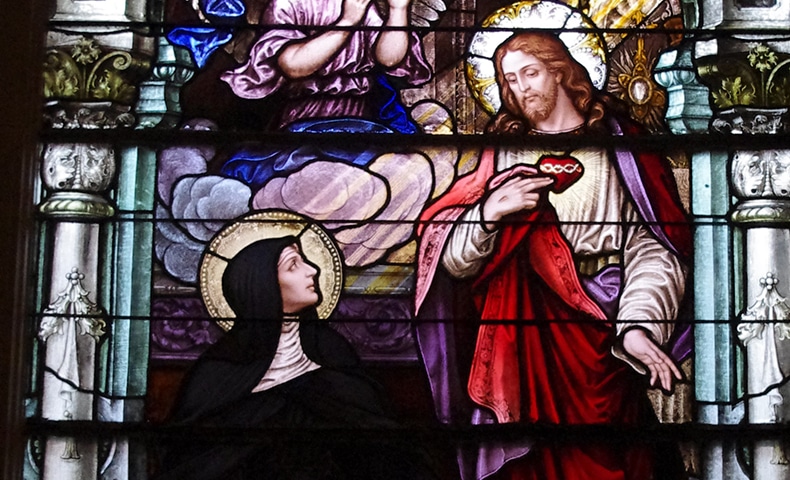St. Thomas Aquinas’ First Way (from Change) and Second Way (from Efficient Causes) are foundational arguments in his Five Ways for proving the existence of God. These arguments reveal Aquinas’ deep metaphysical insight into the nature of existence, causation, and change. While closely related, they address distinct aspects of reality. Understanding these arguments also requires familiarity with Aquinas’ terminology, such as motus (change), causa efficiens (efficient cause), actus (actuality), and potentia (potentiality). Below is a thorough explanation, expanded to address key objections, clarify distinctions, and emphasise the ultimate dependence of all existence on God.
The First Way: The Argument from Change (Via Prima)
Overview
The Via Prima begins with the observation of change (motus) in the world. Aquinas defines change as the actualisation of potential (potentia) into actuality (actus). For example:
A cold object (potentially warm) becomes warm (actually warm).
A stationary train (potentially moving) begins moving (actually moving).
For any change to occur, something external must actualise the potential within an object. For example, wood becomes hot because of fire, which is already hot.
Core Argument
- Observation of Change: Change is evident in the world.
- Principle of Causation: For change to occur, something in a state of actuality must act on something in a state of potentiality. Nothing can actualise itself because it cannot simultaneously be in potentiality and actuality in the same respect.
- Rejection of Infinite Regress: A chain of causes for change cannot regress infinitely, as this would leave the process of change unexplained. For example, a train of carriages requires a locomotive to move them; an infinite chain of carriages provides no explanation for the motion.
- Conclusion: There must be a first unmoved mover (primum movens immobile), pure actuality (actus purus), that initiates all change without itself being changed. This is God.
The Second Way: The Argument from Efficient Causes (Via Secunda)
Overview
The Via Secunda shifts focus from change to efficient causes (causa efficiens)—the chain of causes that bring things into being. While the Via Prima addresses the process of becoming, the Via Secunda examines the ongoing dependence of all beings on something sustaining their existence.
Aquinas observes that everything in the world has an efficient cause, meaning something external brought it into being. For instance:
A building exists because of a builder.
A fire exists because of a spark.
Nothing can be its own efficient cause, as that would mean it caused itself to exist, which is logically impossible. Furthermore, the chain of efficient causes cannot regress infinitely, as this would leave the existence of the current effect unexplained.
Clarification: Per Se vs. Per Accidens Causation
Aquinas distinguishes between two types of causal series: per se (essentially ordered) and per accidens (accidentally ordered).
Per Accidens Series
In a per accidens causal series, the causes are chronological and independent of one another once they occur.
Example: A child is caused by their parents, who were caused by their grandparents. The continued existence of the child does not depend on the parents being alive now.
A per accidens series could, in principle, extend infinitely into the past because each cause operates independently.
Per Se Series
In a per se causal series, the causes are hierarchical and simultaneous. Each cause depends on the prior cause to sustain it.
Example: A book rests on a table, which rests on the floor, which is supported by the building’s foundation. If the foundation were removed, the entire structure would collapse instantly.
The Via Secunda focuses on per se causation, arguing that the existence of all contingent beings here and now depends on a necessary being (ens necessarium), which itself requires no external cause.
Dependence of All Existence on God
Aquinas’ Second Way highlights a profound truth: everything that exists now exists because it depends on God, the ultimate cause of being. This is not merely a matter of God having caused the universe in the distant past; rather, God is actively sustaining all that is in existence at every moment. Without God, nothing could continue to exist, as the chain of causation that supports all beings would collapse. Aquinas teaches that God is not only the causa prima (first cause) but also the causa essendi (cause of being).
If, hypothetically, God could withdraw from creation, everything would cease to exist immediately. This is because contingent beings have no inherent capacity to sustain their own existence; they are entirely dependent on the necessary being, God, who is ipsum esse subsistens (the act of being itself).
Objections and Counterarguments to the Second Way
- The Fallacy of Composition
Objection: Just because every part of the universe has a cause does not mean the universe as a whole needs a cause. This argument commits the fallacy of composition (assuming that what is true of the parts is true of the whole).
Counter: The universe, as a collection of contingent beings, cannot explain its own existence. A stack of contingent causes does not become necessary by accumulation. The Via Secunda addresses the existence of the whole causal chain, not just its individual parts.
- The Universe as the First Cause
Objection: Why posit God as the first cause? Couldn’t the universe itself be the uncaused, necessary being?
Counter: The universe is contingent, made of parts that depend on external causes. A necessary being, by definition, exists independently and requires no external causes. The universe lacks this independence and necessity.
- Infinite Regress of Causes
Objection: Why not accept an infinite regress of causes?
Counter: In a per se series, an infinite regress undermines the current effect. For instance, if a lamp depends on electricity, which depends on the power grid, which depends on generators, there must be an ultimate grounding cause sustaining the system. Without it, the lamp could not shine.
- The Big Bang Explains It All
Objection: The Big Bang theory explains the origin of the universe without needing a first cause.
Counter: The Big Bang explains how the universe evolved but not why it exists. The laws of physics, space, time, and the singularity itself still require an external explanation, which the Via Secunda provides.
- The Universe as a Brute Fact
Objection: Why not accept the universe as a brute fact—something that simply exists without explanation?
Counter: Accepting the universe as a brute fact violates the principle of sufficient reason (principium rationis sufficientis), which asserts that everything must have an explanation. This principle underpins all rational and scientific inquiry.
- Circular Causation
Objection: Could causes form a closed loop, where A causes B, B causes C, and C causes A?
Counter: Circular causation violates the principle of causality because it presupposes the existence of all elements in the loop without explaining their origin.
- Why God? Why Not Something Else?
Objection: Even if we accept a first mover or necessary being, why assume it is God? Couldn’t it be an impersonal force or principle?
Counter: Aquinas’ conception of God includes attributes like pure actuality, immutability, and necessity. These qualities arise naturally from the metaphysical requirements of a first mover. An impersonal force lacks explanatory power for the intelligent design and order observable in the universe.
Conclusion
Aquinas’ First Way and Second Way provide powerful arguments for the existence of God, addressing two key aspects of reality: change and causation. The Via Prima focuses on the process of becoming, while the Via Secunda emphasises the ongoing dependency of all beings on a necessary being. Together, they reject infinite regress, brute facts, and self-causation, pointing to God as the ultimate unmoved mover and uncaused cause.
The Via Secunda in particular underscores a profound truth: all that exists now exists because it is sustained by God in being. God is not merely a distant creator but the very foundation of all existence, the source of being itself (ipsum esse subsistens). Without God, nothing could exist—not for a moment—because contingent beings lack the power to sustain themselves. Aquinas’ insights remain a rigorous and deeply relevant framework for understanding the ultimate grounding of all reality.



